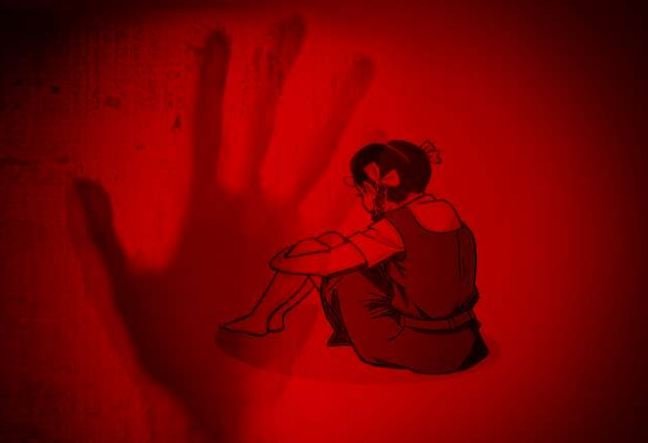Recently, a session court in Karachi has sentenced a man to 14 years in jail after he was found guilty of raping his eight-year-old daughter three years ago, reports Zubair Ashraf for The News.
On March 7, 2019, the rapist Shahid’s wife, a young maid, was at work. Her three children came back home from their school in the evening. Their father, Shahid, was at home to greet them. He sent his two younger sons to play outside and raped his daughter at his house.
The victim told her mother when she returned home from the work. The mother after finding the truth fought with Shahid but he denied the allegations. The mother with her daughter went to Jinnah Postgraduate Medical Centre (JPMC) for the medical examination.
The medical reports showed that the girl was subjected to vaginal and anal intercourse. The police took a week to register an FIR against Shahid on the complaint of his wife.
An investigation was started and the officials questioned the accused and the complainant collected swabs for DNA and chemical analysis and held the clothes of the victim.
After the investigation, the police charged-sheeted the husband for rape and unnatural offence. When the suspect was charged, he did not confess alleging his wife of infidelity. He said that he was falsely accused in the case by his wife because he had caught her cheating on him with another man in their house.
A lawyer, Asiya Munir represented Zakiya and Gulshan in the case. Speaking to The News, she said, “First of all, nobody in our society tends to believe incest cases, not even the judges. They think that these all are made-up stories. In this hostile and harassing environment, proving your case becomes a tremendously difficult job.” The worst part of it, she added, was standing to the leering looks and shameful questions during the arguments in the courtroom.
“I have seen these mother and daughter sitting together like glued in a corner of the courtroom getting humiliated by staffers and taunted by the defence lawyers,” Asiya said, explaining the reason behind her request for an in-camera hearing to record the statement of the victim.
The examination-in-chief of the victim took place inside the chamber of the judge. Except for the victim, judge, and complainant’s and defence lawyers, no one was there in the room.
After the victim stated what had happened, the defence lawyer was allowed to cross-examine her. “You [the victim] are lying because your mother has told you to,” the lawyer representing her father asked her. She responded, “My mother has not taught me to lie.”
“Your mother had an affair with someone,” the lawyer asked another question. Her attorney objected to it but the victim said, “No, my mother cleans the washrooms of others for us. She is not lying nor am I.”
The defence lawyer questions before the judge were: In the case of rape, why is there no violence mark or injury found on the victim? Why was the FIR filed a week later? Why were the clothes of the victim handed to the police 19 days after the incident? Why didn’t the complainant get a letter from the concerned police station before going to the JPMC? The complainant is having an extramarital affair and the person should also be summoned by the court.
In the judgment issued on July 17, the East Additional District and Sessions Judge, Javed Ahmed Phulpoto, observed that as far as the allegation of the affair was concerned, the accused had not been able to produce even his own relatives to support his stance. The judge termed this allegation an attempt by the accused “to malign the complainant and gain sympathy from society to get away from his crime.”
The judge remarked that the absence of torture marks was not enough proof to suggest that the crime did not take place.
“The statement of the victim is straightforward and [she] narrated the entire incident in a very innocent and natural manner and the defence failed to establish that there was any exaggeration in her statement,” the judge observed, adding that the victim’s, the complainant’s and the investigators’ testimonies were not questionable and so was the medical proof which showed the offence on the accused.







